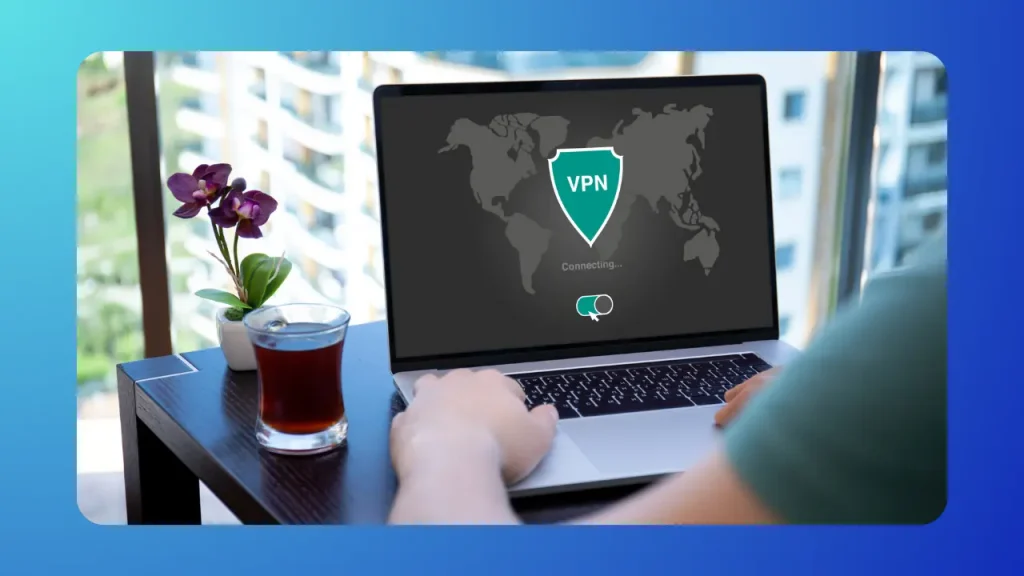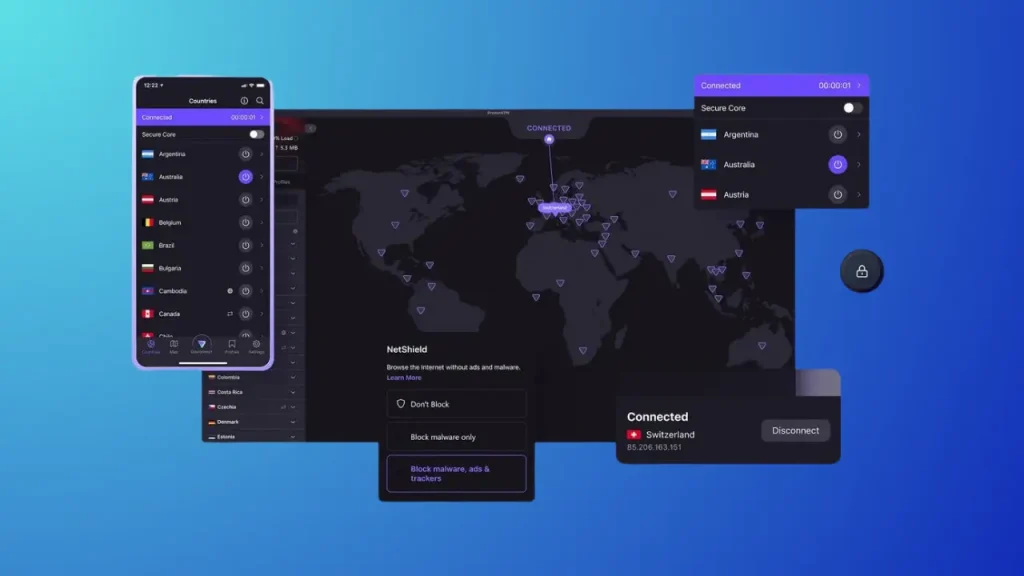If you’re using IPTV for your streaming needs, you may have heard the question: Do I need a VPN for IPTV? Well, it depends on your needs, especially when it comes to privacy, buffering, and regional restriction issues. In this blog, I’ll guide you through when exactly you need a VPN and whether using it is really worth it.
Table of Contents
Toggle
How does VPN work with IPTV?
IPTV, internet protocol television, delivers TV content over the internet. You can watch any movie, TV show, series, or live channel without a cable or satellite connection. If, on one side, it comes with a wide range of flexibility, on the other end, it comes with some potential challenges. These challenges may be privacy issues, slow internet speed, and restricted channels. VPN can take care of all these challenges. It adds an extra security layer to your internet traffic, preventing your ISP or other third parties from spying on your streaming activities. Hence making your IPTV streaming more private, secure, and smooth.
When should you use a VPN while streaming IPTV?
I’ll give the 3 main reasons why you should use a VPN while streaming IPTV:
Privacy Concerns
ISP Throttling
Geo-Restriction
Privacy Concerns:
Many users are concerned about their privacy while streaming because their ISP might be monitoring or tracking their movements. The extreme case is when your IPTV isn’t licensed in their region. Your IP address gets exposed, making your activities visible to ISPs, hackers, or governments. But if you use a VPN, your activities get masked, and the other won’t be able to track your movements.
ISP Throttling:
One of the main reasons IPTV users shift to VPN is the slow internet connection. There may be other reasons for a slow internet connection, but it often happens when your ISP limits internet usage. When you are streaming IPTV, it consumes a large bandwidth because of live broadcast and video quality. So, heavy internet usage from your side slows down the speed on other connections because the wifi is shared among many different users. To balance the bandwidth among all wifi users, your ISP limits your bandwidth. As a result, your streaming gets disturbed by buffering or lagging.
VPNs help stop ISP throttling by encrypting your data. This makes it difficult for ISPs to distinguish whether you’re streaming or browsing, which can lead to better performance.
Bypassing Geo-Restrictions:
Not all IPTV content is available everywhere, and some channels have restrictions in certain areas. So, VPN allows you to change your country’s IP address by connecting with servers in another country (where that content is available). By doing so, you bypass these geo-blocks and make the maximum international content available to you.
Using a VPN is recommended if you have one of these main reasons, such as privacy concerns, geo-restriction, or ISP throttling. How can you install a VPN? Well, I have explained the complete breakdown in another guide which you can visit. Otherwise, avoid using it. Not all IPTVs require VPNs for global streaming.
Things to consider before using a VPN for IPTV:

Avoid using free VPN:
Free VPNs might seem tempting, but they often come with limitations. They have slower speeds, limited server locations, and, in some cases, they may even sell your data. So, if you are a person to whom speed and privacy matters, do not use free VPNs.
Consider regional laws:
Legalities around IPTV can vary by region. In some countries, streaming content is legal, while downloading is not. VPNs certainly help in this case, but using them does not make illegal acts legal. So, knowing the region’s copyright laws is recommended to avoid any legal consequences.
Not all VPNs work with IPTV:
Some IPTV services have contractual agreements that allow them to broadcast content in specified countries. If users from outside that region use a VPN and try to access content, the IPTV provider will detect and block VPN traffic as it would breach their licensing agreements.
To prevent this, use a strong VPN that regularly updates its IP ranges so the IP addresses do not get blocklisted.
FAQs
Is It Safe to Use IPTV Without a VPN?
It is safe only when your privacy is not a big concern. But, if you’re accessing IPTV in a legal gray area—then a VPN can help maintain your privacy. Otherwise, your ISP would know what and when you are streaming.
Does a VPN Help with IPTV Buffering?
Yes, a VPN can improve streaming quality when your ISP is throttling your internet. Since a VPN hides your activity, ISP will not be able to detect and slow down your bandwidth.
Can I Use IPTV on Firestick Without a VPN?
Yes, you can! Streaming on Amazon Firestick does not depend on a VPN. You will only need this when the content you want to watch is not available in that area, or you want to keep your activities private.
Is It Legal to Use a VPN for IPTV?
Yes! VPNs are legal in most countries. However, using it to access copyrighted content without proper licensing can get you in trouble.
Where’s the Best Place to Put a VPN for IPTV?
The easiest way is to install a VPN on your device whether it is a Firestick, Smart TV, Computer, or Mobile.
Does VPN block IPTV?
No, VPN does not block IPTV. In fact, it helps you access IPTV services if your Internet Service Provider is blocking them. However, if you use highly unreliable free VPN it can slow down your internet speed and disturb the IPTV streaming experience.
Conclusion: Is a VPN Necessary for IPTV?
It is optional but can improve your overall streaming experience, especially when you are concerned about privacy, want to avoid buffering, or plan to access geo-restricted content.
However, if none of these pain points apply to you and you are satisfied with your current IPTV setup, don’t use a VPN.
